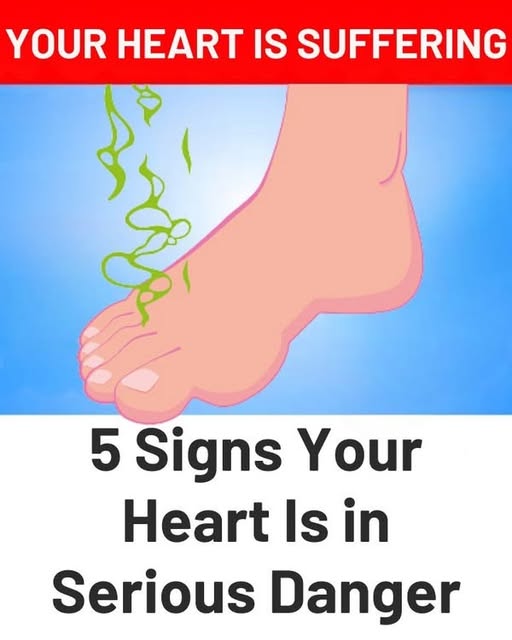Understanding the signs your heart may be in serious danger is crucial for maintaining cardiovascular health. Many people overlook symptoms, attributing them to stress or fatigue. Here are five key indicators to watch for, along with tips on what to do if you experience them.
1. Chest Pain
If you experience persistent or severe chest pain, it could signal heart problems. The pain may feel like pressure or squeezing. If this occurs, seek immediate medical attention. To manage your heart health, consider heart-healthy diets rich in fruits, vegetables, whole grains, and lean proteins.
2. Shortness of Breath
Experiencing shortness of breath during activities you previously handled with ease may indicate heart issues. Shortness of breath can also occur at rest. It’s essential to consult a healthcare professional to assess your heart function. Engage in regular exercise, such as walking or cycling, to improve your cardiovascular fitness.
3. Fatigue
Unexplained fatigue, especially if accompanied by other symptoms, can be a warning sign of heart trouble. Take note of excessive tiredness that doesn’t improve with rest. Focus on getting enough sleep, managing stress levels, and incorporating physical activity into your routine.
4. Irregular Heartbeat
A racing or irregular heartbeat can indicate issues with your heart’s electrical system. Pay attention to palpitations coupled with dizziness or fainting. If this occurs, it’s vital to see a doctor for appropriate tests. Incorporate relaxation techniques, such as deep breathing or meditation, to help manage anxiety that might affect your heart rate.
5. Swelling in the Legs, Ankles, or Feet
Fluid retention causing swelling in your legs or feet can suggest heart failure. Monitoring your weight and fluid intake can help you manage this condition. If you notice significant swelling, contact a healthcare provider immediately for further evaluation.
In conclusion, recognizing these signs early can save your life. Take proactive steps to promote heart health, such as regular check-ups, adopting a balanced diet, and maintaining an active lifestyle. Never hesitate to consult a healthcare professional if you have concerns about your heart.

